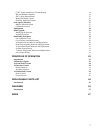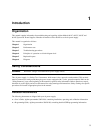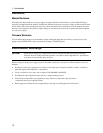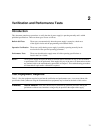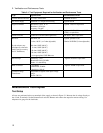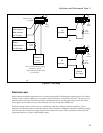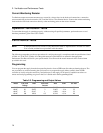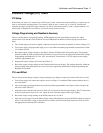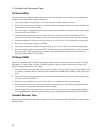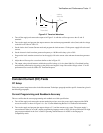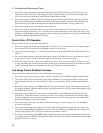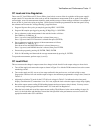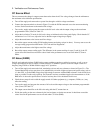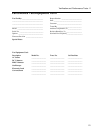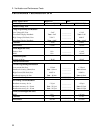
Verification and Performance Tests - 2
15
Constant Voltage (CV) Tests
CV Setup
If more than one meter or if a meter and an oscilloscope are used, connect each to the terminals by a separate pair of
leads to avoid mutual coupling effects. For constant voltage dc tests, connect only to +S and -S, since the unit
regulates the output voltage that appears between +S and -S, and not between the (+) and (-) output terminals. Use
coaxial cable or shielded two-wire cable to avoid noise pickup on the test leads.
Voltage Programming and Readback Accuracy
This test verifies that the voltage programming, GPIB readback and front panel display functions are within
specifications. Note that the values read back over the GPIB should be identical to those displayed on the front
panel.
a. Turn off the supply and connect a digital voltmeter between the +S and the -S terminals as shown in Figure 2-1a.
b. Turn on the supply and program the supply to zero volts and the maximum programmable current (Imax in Table
2-2) with the load off.
c. Record the output voltage readings on the digital voltmeter (DVM) and the front panel display. The readings
should be within the limits specified in the performance test record card for the appropriate model under Voltage
Programming and Readback @ 0 Volts. Also, note that the CV annunciator is on. The output current reading
should be approximately zero.
d. Program the output voltage to full-scale (See Table 2-2) .
e. Record the output voltage readings on the DVM and the front panel display. The readings should be within the
limits specified in the performance test record card for the appropriate model under Voltage Programming and
Readback @ Full Scale.
CV Load Effect
This test measures the change in output voltage resulting from a change in output current from full load to no load.
a. Turn off the supply and connect the output as shown in Figure 2-1a with the DVM connected between the +S
and -S terminals.
b. Turn on the supply and program the current to the maximum programmable value (Imax) and the voltage to the
full-scale value in Table 2-2.
c. Adjust the load for the full-scale current in Table 2-2 as indicated on the front panel display. The CV annunciator
on the front panel must be on. If it is not, adjust the load so that the output current drops slightly.
d. Record the output voltage reading on the DVM connected to +S and -S.
e. Open the load and again record the DVM voltage reading. The difference between the DVM readings in steps (d)
and (e) is the load effect voltage, and should not exceed the value listed in the performance test record card for
the appropriate model under CV Load Effect.



